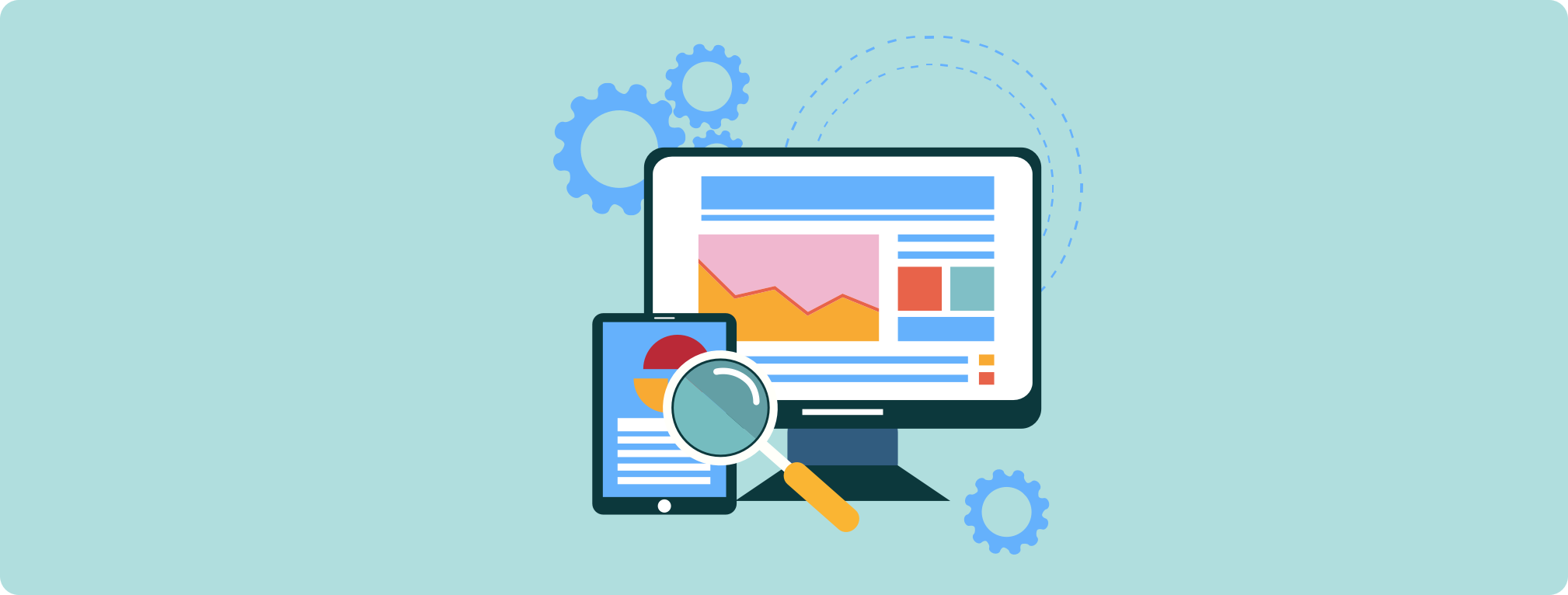


April 8, 2024
Eyes4Research
In the digital age, data is hailed as the new currency. B2C and B2B brands rely on consumer data to drive marketing strategies, personalize experiences, and make informed business decisions. However, concern is growing over the quality of this data, as industry experts have acknowledged a decline.
Imagine this: a frazzled and weary consumer, navigating the digital landscape daily, bombarded with surveys, pop-ups, and requests for feedback. In the pursuit of understanding consumer behavior, seeking data has become a battle, where ironically, the casualties are often the very insights brands are looking for.
Let’s dig deeper into the reasons behind this data quality decline:
As consumers engage with surveys and questionnaires, they do so in a sea of distractions, their focus diluted by constant distractions. Participant distraction and multitasking emerge as detractions, diminishing the quality of the data collected.
In light of these challenges, brands should consider vendors that provide well-managed custom online panels as an option for consumer research. Online panels, such as the ones created and managed by Eyes4Research, are comprised of carefully recruited and engaged participants.
The Benefits of Online Panels for B2C and B2B Brands
Targeted Recruitment: B2C and B2B brands can recruit panelists based on specific demographics, interests, and behaviors, ensuring the data collected is relevant and representative of their target audience.
Ongoing Engagement: By maintaining a community of engaged panelists, brands can gather insights over time, track changes in consumer preferences and behaviors, and build trust and rapport with participants.
Data Validation: The custom online panels created by Eyes4Research enable brands to validate data through surveys, feedback mechanisms, and other studies. This validation process helps identify and rectify inaccuracies, ensuring the integrity and reliability of the data.
Compliance Assurance: By implementing strong consent management and compliance measures, custom online panels ensure that data collection practices adhere to regulatory requirements, limiting the risk of non-compliance and potential fines.
Agile Insights: With access to an engaged panel of respondents, brands can quickly collect feedback and activate marketing campaigns and product offerings in real-time, enhancing agility and responsiveness.
The decline in consumer data quality poses challenges for brands seeking to leverage data-driven insights to drive growth and innovation, However, by embracing custom online panes as a strategic approach to data collection and engagement, brands can overcome these challenges and uncover the full potential of consumer data to fuel their success in the current business landscape.
Online panels are powerful tools that provide a more affordable way for brands to collect valuable data to optimize their marketing strategies. Eyes4Research has everything your company needs to collect high-quality insights from consumers. Our panels are comprised of B2B, B2C, and specialty audiences ready to participate in your next research project. Learn more about our online panels here.

March 29, 2024
Eyes4Research
In the market research space, reaching B2B audiences poses unique challenges. Unlike B2C audiences, B2B decision-makers are often harder to reach due to their busy schedules and specific expertise.
However, with the right recruiting methods and innovative approaches, attracting B2B audiences for research is possible. Here are some effective recruiting strategies tailored to unlock B2B audiences for research purposes, and how custom online panels can make all the difference in your B2B research initiatives.
Understanding the Challenges
Before diving into the recruitment strategies, it is crucial to understand the challenges inherent in targeting B2B audiences for market research:
So what are some effective methods when recruiting audiences for your research initiatives? Here are a few:
Strategic Partnerships: Collaborating with industry associations trade organizations, or professional networks can facilitate access to B2B audiences. These partnerships provide credibility and help establish rapport with potential respondents.
Targeted Outreach: Utilize targeted email campaigns, LinkedIn messages, and social media advertising to reach B2B professionals directly. Personalized communication highlighting the value proposition of participation is key to capturing their interest.
Incentives and Rewards: Offer attractive incentives such as cash rewards, gift cards, or discounts on relevant products and services to incentivize participation. B2B respondents are more likely to engage when they perceive tangible benefits from their involvement.
Thought Leadership Content: Create compelling thought leadership content, such as whitepapers, webinars, or industry reports, to attract B2B audiences. Positioning the research as an opportunity to contribute to industry knowledge can enhance participation rates.
The Power of Custom Online Panels
Custom online panels are valuable for recruiting and engaging B2B audiences in market research. Online panels, such as the ones created and managed by Eyes4Research, offer several important advantages.
Custom panels enable recruiters to target specific B2B demographics based on industry, job title, company size, and other relevant criteria. This sort of targeted approach ensures the recruitment of highly qualified respondents.
At Eyes4Research, our B2B panel provides our clients with access to decision-makers across industries, such as Banking, Legal Services, Marketing/Advertising, Real Estate, Financial Services, and many more.
By building a dedicated panel of B2B participants, researchers can establish long-term relationships and foster ongoing engagement. Regular communication and exclusive opportunities incentivize panel members to remain active and provide consistent feedback.
Online panels provide a controlled environment for data collection ensuring high-quality responses and adherence to data privacy regulations. Researchers can implement regulations. Researchers can also implement stringent security measures to safeguard sensitive information shared by B2B respondents.
Recruiting B2B audiences for research requires a combination of strategic approaches, targeted outreach, and innovative solutions. Custom online panels emerge as a powerful tool for overcoming the challenges with accessing niche B2B demographics, offering unparalleled flexibility, engagement, and data quality.
By leveraging these recruiting methods and harnessing the capabilities of custom online panels, researchers can gain valuable insights from B2B audiences, driving informed decision-making in an increasingly competitive business landscape.
Read more about market research and the business landscape on the Eyes4Research blog. Eyes4Research also has everything you need to collect high-quality insights from consumers. Our panels are comprised of B2B, B2C, and specialty audiences ready to participate in your next research project. Learn more about our specialty panels here.

March 26, 2024
Eyes4Research
The dental industry, often overlooked in market research, is a multifaceted landscape comprising diverse professionals, specialized services, and evolving trends. Understanding its complexities sheds light on the nuances within the field and unveils opportunities for researchers to thrive and innovate.
Let’s take a closer look at the intricacies of the dental industry and explore how online panels of dental professionals can revolutionize research methodologies.
The Diverse Range of Dental Professionals
The dental industry encompasses a diverse range of professionals, each contributing unique expertise to patient care and oral health. From general dentists to specialized practitioners such as orthodontists, periodontists, and oral surgeons, the field boasts a wide spectrum of skills and specializations.
Each category of dental professional brings distinct perspectives, practices, and challenges, making it essential for researchers to comprehend the dynamics at play within each specialty.
Specialized Services and Treatment Methods
Within the dental industry, the range of services and treatment methods is vast, catering to diverse patient needs and preferences. From routine dental check-ups and cleanings to complex restorative procedures and cosmetic enhancements, dental practices offer a wide array of services aimed at improving oral health and enhancing aesthetics.
In addition, advancements in technology and treatment techniques continually reshape the market, driving innovation and transforming patient care.
What Are the Challenges for Research?
Despite its significance, the dental industry poses unique challenges for researchers. Accessing relevant data, understanding consumer behavior, and gauging market trends require tailored approaches that resonate with dental professionals and stakeholders.
Traditional market research methods may fall short of capturing the nuanced insights and perspectives prevalent within the dental community, highlighting the need for innovative and effective solutions that will bridge the gap between researchers and industry experts.
How Custom Online Panels Can Unlock Dental Industry Insights
Custom online panels of dental professionals as the ones created and managed by Eyes4Research, offer a powerful solution for conducting targeted research within the dental industry. By assembling panels comprising dentists, specialists, hygienists, and other stakeholders, researchers gain direct access to valuable insights, opinions, and trends that shape the industry landscape.
These panels facilitate real-time engagement, allowing researchers to collect feedback and refine strategies with precision and efficacy.
The Value of Customization and Collaboration
Tailoring online panels to specific research objectives and demographics enhances the relevance and accuracy of the insights collected. Collaborating with key thought leaders and influencers further enriches the research process, encouraging dialogue, and exchange of ideas within the dental community.
Embracing customization and collaborations means that researchers can unlock new dimensions of understanding and drive meaningful impact in the dental industry.
The dental industry represents a dynamic ecosystem characterized by diversity, innovation, and complexity. Market researchers navigating this space need to recognize the nuances present in different specialties, services, and stakeholders.
The dental online panel created by Eyes4Research offers a transformative research approach, enabling us the ability to harness the expertise and perspectives of dental professionals effectively.
Online panels are powerful tools that provide a more affordable way for companies to gather valuable data to determine the value of their brand’s product or service. Eyes4Research has everything your company needs to collect high-quality insights from consumers. Our panels are comprised of B2B, B2C, and specialty audiences, like dental professionals ready to participate in your next research project. Learn more about our online panels here.

March 26, 2024
Eyes4Research
In market research, the idea of collaboration is a marker of innovation instead of a constraint. While some researchers might harbor reservations about sharing insights or data with partners, the reality is that research partnerships can spark growth, deepen understanding, and encourage a climate of community within industries.
Here is why research partnerships are not only beneficial but crucial for driving meaningful insights and propelling B2C and B2B businesses forward.
Pooling Expertise for Enhanced Insights
Research partnerships bring together diverse perspectives, expertise, and resources. Collaborating with other organizations, institutions, or experts allows for a broader scope of analysis and interpretation.
By pooling these resources, teams can access specialized knowledge, methodologies, and tools that might not be readily available in-house. This collective expertise often leads to research that is more comprehensively designed, higher-quality data, and more nuanced insights that go beyond the confines of individual capabilities.
Accelerating Innovation and Problem-Solving
Innovation thrives in environments where ideas can intersect and collide. Research partnerships serve as catalysts for innovation by creating environments where creativity flourishes. Collaborative endeavors encourage brainstorming, experimentation, and the exploration of new methodologies.
When organizations join forces, they can tackle complex challenges more effectively, uncover new solutions, and stay ahead of rapidly changing market trends.
Expanding Reach and Diversity
Partnerships enable research efforts to transcend geographic and demographic boundaries. By collaborating with diverse partners, researchers gain access to varied perspectives, cultural insights, and market nuances.
This expanded reach allows for more inclusive and representative research outcomes, ensuring that insights resonate with a broader audience. In addition, partnerships facilitate access to untapped markets, niche demographics, and hard-to-reach populations, enabling organizations to uncover hidden opportunities and address the unmet needs of consumers.
Building Trust and Credibility
In an era marked by data privacy concerns and ethical considerations, research partnerships underscore transparency, accountability, and integrity. Aligning with reputable partners allows organizations to enhance their credibility and build trust among stakeholders.
Collaborative research initiatives demonstrate a commitment to rigorous methodologies, ethical standards, and data privacy principles.
Why Custom Custom Online Panels Are Important
As B2C and B2B businesses navigate the complexities of the digital age, accessing reliable and actionable insights is crucial. Custom online panels offer a dynamic platform for collecting targeted feedback and uncovering actionable intelligence.
At Eyes4Research, we specialize in designing and managing custom online panels that are tailored to our clients’ unique research needs. Here is how custom online panels empower our clients:
With Eyes4Research, our clients harness the power of partnership and unlock the potential of custom online panels to drive informed decision-making encourage innovation, and stay ahead in today’s competitive business landscape.
Online panels are powerful tools that provide a more affordable way for B2C and B2B businesses to collect valuable data to determine the value of their brand’s product or service. Eyes4Research has everything your company needs to collect high-quality insights from consumers. Our panels are comprised of B2B, B2C, and specialty audiences ready to participate in your next research project. Learn more about our online panels here.

March 26, 2024
Eyes4Research
The healthcare space is always changing, and understanding the perspectives and behaviors of physicians is crucial for pharmaceutical companies, medical device manufacturers, and healthcare providers alike. Market research with physicians offers invaluable insights that drive product development, marketing strategies, and patient care improvements.
However, conducting research with physicians presents unique challenges that require innovative solutions. Here, we’ll explore some of these challenges and discuss how custom online panels can be instrumental in overcoming them effectively.
Limited Time Availability
Physicians are notoriously busy professionals, often juggling patient appointments, administrative tasks, and continuing education requirements. Traditional research methods such as in-person interviews or focus groups, can be challenging to schedule and may disrupt physicians’ already packed schedules.
Custom online panels, such as the ones created and managed by Eyes4Research, offer a convenient solution by allowing physicians to participate in research activities at their own pace and on their own time, minimizing disruptions to their busy schedules.
Access to Diverse Physician Specialties
Physicians represent a diverse range of specialties, each with its unique perspectives and insights. Recruiting a representative sample of physicians across various specialties can be difficult using traditional recruitment methods.
Custom online panels enable researchers to access a broader and more diverse pool of physicians, ensuring that insights are reflective of the entire medical landscape. At Eyes4Research, our Physician panel represents a wide range of specialties, including Family Medicine, Immunology, Cardiology, Primary Care, and many more.
Geographic Reach
Physicians are located across a variety of geographic regions, ranging from urban centers to rural communities. Conducting research with physicians scattered across different locations can be logistically challenging and costly.
Depending on where the research is being conducted, there can be differences in data collection, due to factors such as the geopolitical climate, environmental realities, and cultural variations that need to be considered.
For instance, conducting research in the U.S. and Canada requires researchers to connect with local and regional authorities to secure any necessary permits. A short list of some of the possible types of organizations researchers might need to contact includes hamlet or community council offices, indigenous representatives, and any local research institutes.
Both the U.S. and Canada have regions that are home to indigenous peoples and gaining insights from physicians in those regions would be crucial to any research project.
Custom online panels break down geographic barriers, allowing researchers to engage with physicians from across the country or even internationally, without the need for extensive travel or the type of logistical coordination outlined above.
Our Physician panel has a custom sample of over 300,000 healthcare professionals from around the globe who are authentic, well-screened, and ready to participate in our clients’ research projects.
Compliance and Privacy Concerns
Physicians are bound by strict regulations regarding patient privacy and data security. Traditional research methods may raise concerns about confidentiality and compliance with regulatory requirements.
Custom online panels provide a secure and compliant platform for data collection ensuring that any sensitive information is handled with the utmost care and confidentiality.
Custom online panels offer a versatile and efficient solution for overcoming the challenges associated with conducting market research with physicians. By leveraging an online panel managed by Eyes4Research tailored to the unique needs of healthcare researchers, companies can accomplish the following:
Custom online panels present a powerful tool for navigating the complexities of market research with physicians. By embracing innovation and leveraging technology, healthcare organizations can unlock valuable insights that drive success in an increasingly competitive healthcare arena.
Read more about the healthcare industry and how your company can harness the power of online panels on the Eyes4Research blog. Eyes4Research also has everything you need to collect high-quality insights in the healthcare space. Our panels are comprised of B2B, B2C, and specialty audiences ready to participate in your next research project. Learn more about our specialty panels here.

March 26, 2024
Eyes4Research
The world of advertising is constantly evolving, but one thing remains constant: the importance of understanding and targeting the right audience. Our world is hyperconnected, and consumers are bombarded with countless daily messages, many of which don’t even reach their target audiences because consumers often skip right past advertising.
Our recent study on consumer perceptions of advertising found that 45% of respondents stated they regularly skip past online advertising whenever they can. Reaching the right audience with the right B2C and B2B messaging has never been more crucial.
For ad agencies striving to deliver impactful campaigns, the key to success is hitting the mark with messaging the first time. And that starts with research.
The Significance of Audience Understanding
Effective advertising begins with a deep understanding of the target audience. Gone are the days of one-size-fits-all approaches. Today, consumers expect personalized experiences tailored to their interests, preferences, and behaviors. In our study, 31% of respondents stated that online ads targeted to their interests are more effective than other forms of advertising.
By gaining insights into the demographics, psychographics, and behaviors of their target audience, ad agencies can create messaging that resonates on a deeper level, driving engagement and encouraging brand loyalty.
Targeting Precision is the Path to Success
Targeting the right audience not only enhances the effectiveness of advertising campaigns but also maximizes ROI. By directing resources toward those consumers most likely to convert, ad agencies can optimize their advertising spend and achieve better results.
However, reaching the ideal audience requires more than just guesswork– it demands data-driven strategies backed by robust research and analysis involving the precise audience
Why Custom Online Panels Are the Game-Changing Solution
Enter custom online panels– an invaluable tool for gaining actionable insights into target audiences. By leveraging custom online panels, such as the ones we create and manage for our clients, ad agencies can access a diverse pool of participants who match their desired demographics, ensuring accurate representation and reliable data.
These panels provide a platform for conducting in-depth research, collecting feedback, and testing B2C and B2B messaging in real time. This empowers ad agencies to make informed decisions and refine their campaigns for maximum impact.
The Benefits of Online Panels for Ad Agencies
The modern advertising landscape is competitive, and understanding and targeting the right audience is critical to success. When ad agencies have the power of custom online panels on their side, they can gain the insights needed to create compelling campaigns that resonate with consumers on a deeper level.
With precision targeting and data-driven strategies, agencies can hit the mark with messaging the first time, achieving impactful results, and delivering value to clients.
Online panels are powerful tools that provide a more affordable way for advertising agencies to gain valuable insights to refine their messaging and target the right audience. Eyes4Research has everything your company needs to collect high-quality insights from consumers.
Our panels are comprised of B2B, B2C, and specialty audiences ready to participate in your next research project. Learn more about our online panels here. Download our report, Consumer Attitudes and Perceptions About Advertising Styles here.

February 21, 2024
Eyes4Research
The advertising industry constantly evolves, and understanding consumer behavior and preferences is paramount for success. Advertising agencies are crucial in crafting campaigns that resonate with target audiences. However, agencies must prioritize effective market research initiatives to truly excel in this space.
Let’s dive into the significance of market research for advertising agencies and learn more about why these agencies should consider integrating online panels into their strategies.
Understanding Consumer Dynamics
Consumer behavior is dynamic, and influenced by various factors such as socio-economic trends, cultural shifts, and technological advancements. To stay ahead in the competitive advertising arena, agencies need to decipher these complexities effectively.
Traditional research methods, such as focus groups and surveys have their place for certain, but often fall short in capturing real-time insights.
The Need for Comprehensive Research
While advertising agencies have historically relied on conventional market research techniques, the ever-changing digital era demands a more agile and data-driven approach. In this environment, decisions need to be informed by up-to-the-minute data and insights. Here is where custom online panels emerge as a game-changer for advertising agencies.
The Power of Online Panels
Online panels offer a dynamic platform for conducting market research with unparalleled efficiency and depth. By leveraging online panels, such as the ones Eyes4Research creates and manages for our advertising agency clients, agencies gain access to diverse pools of respondents representing various demographics, geographies, and psychographics. This diversity enables advertising agencies to conduct targeted research tailored to specific client needs.
What Are the Key Advantages of Online Panels for Advertising Agencies?
The world we live in is hyper-connected, and the success of advertising campaigns hinges on the ability of advertising agencies to understand and adapt to evolving consumer dynamics. By embracing online panels as a cornerstone of their market research strategy, advertising agencies can unlock a wealth of insights, enhance campaign effectiveness, and stay ahead in an increasingly competitive landscape.
Advertising agencies that leverage the power of online panels will elevate their market research efforts to new heights and be rewarded with higher-quality consumer insights and more effective campaigns.
Online panels are powerful tools that provide a more affordable way for advertising agencies to collect valuable data to determine the value of their brand’s product or service. Eyes4Research has everything your company needs to collect high-quality insights from consumers. Our panels are comprised of B2B, B2C, and specialty audiences ready to participate in your next research project. Learn more about our online panels here.

February 15, 2024
Eyes4Research
In a marketing landscape that is constantly changing, understanding consumer trends is key to staying ahead of the curve. With evolving consumer behaviors and preferences, B2C and B2B brands seek insights to tailor their strategies effectively. This provides a perfect opening for online panels– a dynamic tool revolutionizing market research by providing real-time consumer insights.
The Evolution of Market Research
Traditional market research methods often struggle to keep pace with today’s rapidly changing consumer landscape. The limitations of surveys, focus groups, and observational studies underscore the need for more agile and data-driven approaches. Online panels offer a solution by providing access to diverse demographics, cost-effective data collection, and timely feedback.
Understanding the Power of Online Panels
Online panels, such as the ones created and managed by Eyes4Research, consist of pre-recruited participants who participate in various research activities. These panels allow researchers to collect feedback on products, services, and brand perceptions efficiently. The flexibility and scalability of online panels make them invaluable assets for brands seeking actionable insights.
How Brands Can Leverage Online Panels for Consumer Understanding
B2C and B2B brands and marketing professionals can harness the power of online panels to gain deeper insights into consumer behavior. By analyzing panel data, businesses can identify trends, preferences, and pain points that shape consumer decisions. At Eyes4Research, our clients are examples of how our custom online panels have informed their successful marketing strategies and product development initiatives.
Navigating Consumer Trends with Online Panels
Online panels empower brands to navigate evolving consumer trends with confidence. By tracking data trends and patterns, businesses can anticipate shifts in consumer behavior and adapt their strategies accordingly. Whether exploring emerging markets or fine-tuning product offerings, online panels provide the agility needed to stay ahead in today’s competitive climate.
This is Why Online Panels Matter
The advantages of the custom online panels that Eyes4Research creates and manages for our clients are clear: real-time insights, cost-effectiveness, and access to diverse demographics. By integrating online panels into their market research arsenal, our clients gain a competitive edge in understanding consumer trends. With the ability to capture nuanced insights and track market dynamics, online panels are indispensable tools for driving business growth.
In the digital age, navigating consumer trends requires agility, precision, and insight. Online panels offer a window into the minds of consumers, providing valuable data to inform strategic decisions. By embracing online panels as a cornerstone of market research, brands can unlock new opportunities, forge deeper connections with consumers, and chart a course for sustainable growth in a marketplace that always changing.
Online panels are powerful tools that provide a more affordable way for companies to gather valuable data to determine the value of their brand’s product or service. Eyes4Research has everything your company needs to collect high-quality insights from consumers. Our panels are comprised of B2B, B2C, and specialty audiences ready to participate in your next research project. Learn more about our online panels here.

February 12, 2024
Eyes4Research
Five years ago electric vehicles (EVs) were the consumer rage and appeared poised to overtake traditional, combustion engine autos in sales. Propelled by a number of factors, including government subsidies, environmental consciousness, and the allure of new technology, automakers couldn’t roll out new EV models fast enough. But within the last year that’s all seemed to have changed. Although EV sales are still growing, they appear to have peaked and automakers have responded by cutting back production and sales. Auto brands, car dealerships, investors, and consumers that understand this trend, and where it might go, will be in a position to possibly take advantage of the current EV slump.
You’ve certainly been affected by the EV revolution in some way. You may own an EV or know someone who does, and if you don’t then you’ve seen EV charging stations or watched several commercials for the latest EV brand. There’s no doubt that EVs have staked out a significant segment of the auto market, but it’s also true that the EV revolution has fallen short of some expectations. So let’s take a look at the EV industry and the problems it’s recently faced and why, as well as what investors and consumers can expect in the future.
The Green Dream
Although EVs may have only recently entered the public counscieneness at a major level, the first cars with batteries were invented in the late 1800s. In fact, by 1900 EVs were one-third of the cars on the road, but they were soon after replaced by autos with combustion powered engines and all but forgotten for decades.
The concept of EVs was brought back in the late twentieth century during the gas crises and oil embargos and then in the 2000s when the push for renewable, green energy became popular with many in government, especially those on the left of the political spectrum. The green energy push has led some state to pass laws requiring that all new automobiles sold within their borders must have zero emissions by a certain date. So far, California has set a date of 2035 with Connecticut, Maryland, Massachusetts, New Jersey, New York, Oregon, Washington, and Rhode Island all committing to banning new sales of combustion engine autos at a future date.
The federal government has recently also used the law to promote EVs. As part of the Inflation Reduction Act of 2023, which the Democrat controlled Congress passed, and was signed by Democrat President Joseph Biden, EV buyers are eligible for tax credits. So, different state governments and the federal government have clearly used a “carrot and stick” approach to push consumers to buy EVs and the numbers show that this may have initially been successful, but things now appear to be going the other way.
Sagging Sales
EV sales peaked in 2022 and although growth continued in 2023 the pace slowed significantly. Analysts now believe that Biden’s target of EVs capturing 50% of the auto market by 2030 seems like a pipe dream. Yet if EV sales continued to grow in 2023, why the negative forecast for the space?
The reasons for analysts being bullish on EVs involves a number of different factors, although for the most part it comes down to the simple economic concept of supply and demand. Automakers made major cutbacks on nearly all EV models and prices in 2023. Tesla slashed prices on all its models while Ford reduced production on its much hyped EV F-150 and postponed $12 billion in EV spending. General Motors also announced that it has delayed the launches of three of its new EV models.
The pullback by auto makers has extended to car rental and sales companies as well. Car rental giant, Hertz, recently announced that it’s selling about 20,000 EVs from its fleet, which includes Teslas. This is just two years after Hertz made a deal with Tesla to buy its newest models after the rental company planned to convert 25% of its fleet to electric by the end of 2024. The EV slump has also hurt car dealerships across the US.
The car sales industry uses the term “days’ supply” to describe how long it takes for current inventory to sell at the current sales rate. In late 2023, the days’ supply for EVs averaged about eighty-eight days, which was double what it was one year prior. By comparison, the average days’ supply for combustion engine vehicles was fifty-nine days in late 2023, which was normal by industry standards. All of this indicates that the demand for EVs has simply waned, but the reasons for the EV slump are a little complicated.
Not Buying into Electric
Among the many factors that have driven consumers to shy away from EVs, economic considerations are at the forefront. But even these economic factors are a bit more complex. For example, one of the practical selling points of EVs was that they more than pay for themselves by saving money from not having to buy gas. When the gas prices skyrocketed in 2022, EV sales were at their peak, but just one year later gas was down about thirty cents per gallon on average, which many experts believe pushed consumers to purchase what they view as more reliable autos – combustion engine vehicles. Consumers are also driven by the still high costs of most EVs.
As EV sales peaked in 2022, they appeared poised to become status symbols just as much as everyday modes of transportation. The reason for the status was partially due to price range remaining outside the budget of most people who view cars as a necessity more than a luxury item. Cox Automotive pegged the average EV price at $50,683 in September 2023, which although down 22% from the previous year is still high compared to combustion engine vehicles. This study was bolstered by a CarGurus report that found EVs were still 28% higher than their combustion engin26e counterparts. Consumers interested in buying EVs can also expect to pay higher interest rates at the dealerships, creating another factor that has dulled consumer demand. Part of the reason for EVs’ higher costs is the novelty, but the technological knowledge and specific components needed to make them are the driving force.
The battery is the most expensive part of any EV, and the bigger the battery the more expensive the vehicle. One of the major problems consumers often cite with EVs is their limited range, so in order to mitigate this problem manufacturers have made larger batteries for their vehicles. Larger batteries have nominally reduced the range problem, but they’ve also contributed to higher overall costs, creating a sort of catch-22.
In addition to the costs of EVs, consumers have also cited performance concerns. Range is the number one issue consumers cite, with most EVs offering 250 to 500 miles on a single charge, although those numbers depend upon conditions. Cold weather adversely affects EV batteries and when combined with limited charging networks, has led to problems for some EV owners. A January 2024 polar vortex left some EV owners in Chicago waiting hours in line for charges, bringing another major concern consumers have with EVs. A report by AAA stated that 56% of the people they interviewed cited a lack of convenient charging options as a reason for not going electric. EV owners can purchase home charging stations but they cost several thousand dollars more to an already highly priced auto.
Consumers have also discovered that just because EVs don’t have large block engines, they are far from immune to mechanical and technical problems. A Consumer Reports study showed that from 2021 to 2023, 80% more problems were reported in EVs than their combustion engine counterparts. The economic and performance issues are clearly the driving forces behind consumer disinterest in EVs, but the automakers also have themselves to blame for poor marketing.
The automakers originally marketed EVs as eco-friendly version of combustion vehicles, but consumers quickly found out that this wasn’t true. Although EVs are less complex to build and have simpler drive trains, they are more complex machines in many ways. Many new EV owners are upset when they learn that it takes plenty of training to do the simplest of maintenance on EVs and there are far fewer mechanics who have the background to work on them. Finally, in a country that has become so divided by politics, geography, and age, EVs are often viewed as cars of young, urban liberals. Even Telsa founder and CEO Elon Musk’s recent dabbles with political statements and endorsements of ideas and candidates on the right-wing of the political spectrum have so far not changed this image.
Future Trends
Examining sagging EV sales and the reasons behind it can help investors, auto dealers, and consumers understand what to expect in the future. Don’t expect the EV industry to collapse, but it’s likely automakers will continue with their current pullback of EV models. There’s signs that some automakers are switching production to hybrids, which would politically appease eco-conscious consumers but not necessarily meet government mandates. Toyota has recently increased its hybrid production and currently offers more than twenty models that are all more popular than its EV models.
It’s also possible that the federal and different state governments will reconsider some of their EV mandates. It’s very unlikely that the auto industry will meet the federal government’s 2032 goal of 67% of all new vehicles being EVs, as they are currently just under 8% of the market share.
All of this has many potential implications for consumers. If the federal and state governments continue to mandate EV production, the automakers may have to reduce costs further, but it may be at the cost of quality. Auto brands could increase sales with better marketing campaigns that target Middle America as well as emphasizing how EVs are different than combustion vehicles. It may be that EVs will continue to be a niche market in the US, but the automakers that understand how consumer sentiments have driven the current EV slump will be in a position to take advantage of these future trends.
About the author:
An industry leader and influencer – Rudly Raphael specializes in all aspects of research logistical design involving quantitative methodology, implementing internal system infrastructure to streamline business processes, channelling communication and developing innovative research solutions to ensure Eyes4Research remains a competitive force in the marketplace. An entrepreneur, inventor (patent holder), blogger and writer – his articles have been published in various magazines such as Medium, Ebony Magazine, Bussiness2Community and also cited in various journals and academic publications.

February 7, 2024
Eyes4Research
Advertising is dynamic– crafting compelling B2C and B2B brand messages and captivating creative materials is essential for brands to cut through the noise and resonate with target audiences. Let’s dive into the valuable role of online panels in refining advertising messages and shaping your creative development.
Understanding Message Testing and Creative Development
Message testing evaluates the effectiveness of advertising messages to ensure they resonate with the intended audience. Meanwhile, creative development involves refining visuals, sounds, and narratives to create engaging and memorable ads.
Leveraging Online Panels for Message Testing
Custom online panels, such as the ones created and managed for our clients by Eyes4Research, offer a diverse pool of participants, allowing brands to select specific demographics, interests, and behaviors for targeted feedback. Through well-designed surveys, brands can gain valuable insights from panelists about their perceptions of advertising messages and creative elements.
Collecting Feedback and Insights
Panelists provide feedback on message clarity, relevance, and memorability, helping brands better understand which messages resonate most effectively. Additionally, evaluating creative elements such as imagery, music, and branding aids in refining the visual and auditory components of ads.
Iterative testing and Optimization
Using iterative testing allows B2C and B2B brands to refine advertising messages and creative elements based on panel feedback. By analyzing data and making adjustments, brands can optimize their campaigns for maximum impact and resonance with the target audience.
Applying Insights to Advertising Campaigns
Insights gleaned from message testing and creative development inform strategic decisions in advertising campaigns. From media planning to content creation, understanding audience preferences and perceptions enhances the effectiveness of marketing efforts.
Eyes4Research creates and manages custom online panels that offer our clients the opportunity to tailor their research to specific audience segments ensuring targeted actionable insights. By partnering Eyes4Research, B2C and B2B brands gain access to a robust panel of engaged participants, facilitating efficient and effective message testing and creative development.
Harnessing the power of online panels for message testing and creative development is key to crafting impactful advertising campaigns. By leveraging insights from panelists, B2C and B2B brands can refine their messaging, captivate audiences, and drive success in the competitive landscape of advertising. Partner with Eyes4Research to unlock the full potential of custom online panels for your team’s marketing strategies.
Online panels are powerful tools that provide a more affordable way for companies to gather valuable data to determine the value of their brand’s product or service. Eyes4Research has everything your company needs to collect high-quality insights from consumers. Our panels are comprised of B2B, B2C, and specialty audiences ready to participate in your next research project. Learn more about our online panels here.